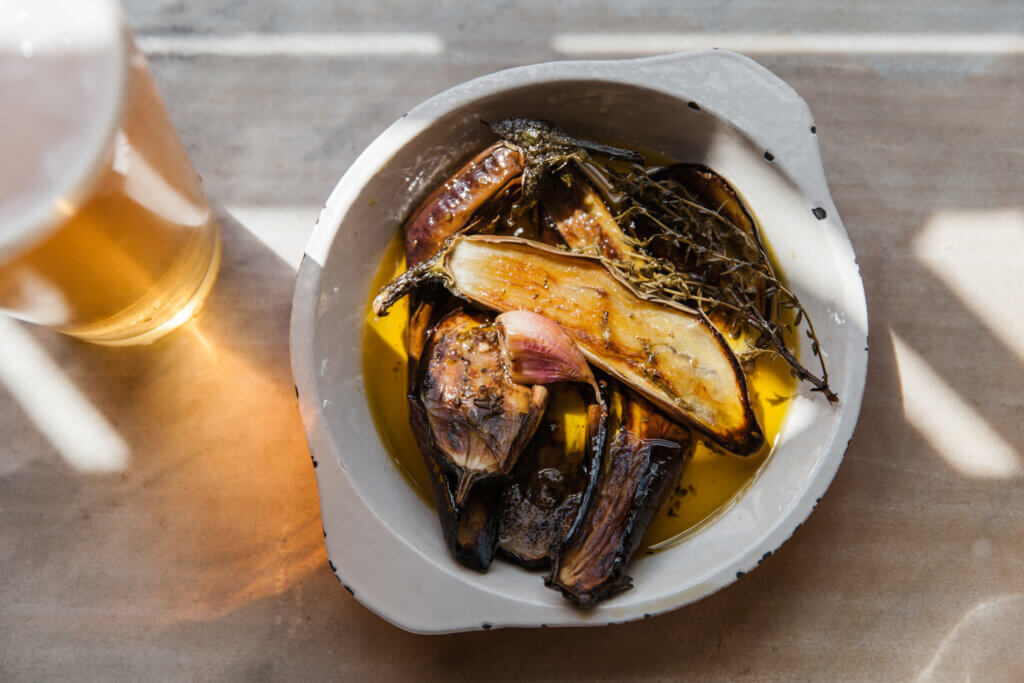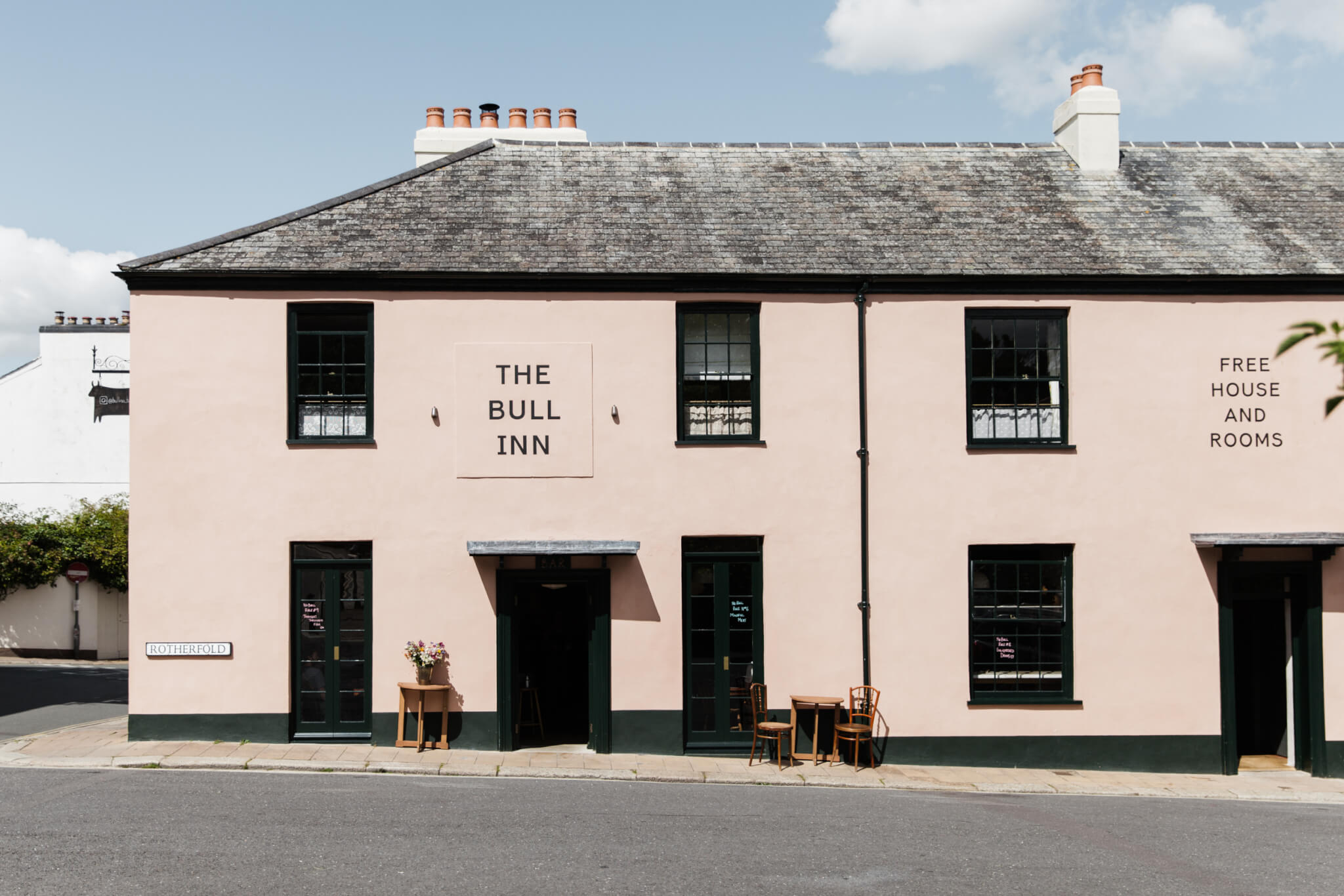Hospitality is a vast consumer of resources; it’s why the sector is under intense pressure to address its environmental impact and promote more sustainable practices. But with most businesses just tinkering away tokenistically at the edges, there’s hope for a more vigorous approach. This is why the UK’s first ever qualification in regenerative and sustainable hospitality has just launched.
When it comes to being more sustainable, the vast majority of restaurants, hotels, and pubs are paying lip service to this challenge. Adoption of best practices is patchy at best, so is innovation. Similarly, knowledge on how to seriously reduce emissions, source through ethical supply chains or supercharge the circular economy is very limited.
“When you go to catering college you are taught virtually nothing about what sustainable hospitality actually means, in terms of, for example, procuring food or beverages or local sourcing. The issues are extremely complex, nuanced, and not well understood,” explains Geetie Singh-Watson, founder of the Bull Inn, which has launched the course in partnership with the Sustainable Restaurant Association and the Apricot Centre.
She adds: “There are also a lot of false narratives out there with some people and outlets blatantly lying about their so-called green credentials. A lot is done in a naïve way. This must change through education.”
Shifting the dial on better practices
The new level 3 award is a UK first. The 12-week course, which is Ofqual-recognised, sold out in seven hours and was oversubscribed. It will be held at Baddaford Farm, the home of Geetie and Guy Singh-Watson and the Baddaford Collective. By basing the course at a working farm, the goal is to facilitate a deeper understanding of the land and the people who work on it.
Sustainable hospitality is about doing no harm to the food, farming, and environmental systems it depends on. The concept of regenerative goes one step beyond. It’s about actively doing good – leaving places, people, and planet better off than they were before. The course, which starts on October 16th, for one day a week, will address the huge training deficit.
”This qualification is born out of my 30 years working in this industry. It has been an incredibly long haul to get to this stage, questioning and fine-tuning what we do over decades. It is this experience that we are now able to share,” states Geetie Singh-Watson.
The aim is to educate hospitality professionals on how to be truly sustainable and regenerative. This involves learning about the issues, as well as deploying rigorous procedures, protocols and operational systems.
“We want students to actually question what is sustainable and regenerative in terms of hospitality. There are so many interpretations and no hard and fast industry rules. We are trying to put structure around what is best practice and how people can implement such learning into their own business. We also want people to take a deeper dive into every aspect of how they operate,” states Phillipa Hughes, Managing Director of the Bull Inn, who has developed the course, turning Geetie’s experience into a comprehensive narrative that can be taught.

The qualification was borne out of a journey that the Bull Inn in Totnes has been on over the last few years to become radically ethical and values driven. It has distilled its philosophy on these issues, by coming up with a set of ‘No-Bull Rules.’ These govern what the venue buys, how they trade, and how they work, taking account of the triple bottom line – planet, people and profit.
Last year, The Bull won the sustainability prize at the National Restaurant Awards and was voted one of the top five most sustainable hotels in the UK by Country Town & House for the second year in a row.
Despite the accolades, the team has found a complete lack of comprehensive training in this area, hence the need to take action and develop their own programme.
“We found that there weren’t any real hospitality qualifications that touched on this topic. There were also no true certifications or definitions in the hospitality industry on what actually is sustainable or regenerative. It means very few people in the trade know how to ask the right questions or hold people and their venues to account,” details Geetie Singh-Watson, who opened the world’s first organic pub in Islington, London in 1998 and has been awarded an MBE for services to the pub trade.
She continues: “Data is key – both quantitative and qualitative – to this process, as is truth, honesty, transparency, and full accountability. Excellence also needs to be practically demonstrated. And if you’re going to use these terms, what do you actually mean by them?”
It’s struck a chord with industry
Ten course modules will cover everything from building ethical supply chains to food waste, managing resources to greening the bar, as well as a strong focus on food and farming systems. Community engagement is also a study topic, as are finances, human resources, greenwashing, and marketing. After five assessments, students will have to deliver a business plan for change at the end of the course.
“Everybody thinks about food when it comes to sustainability. But there is so much more. Take the bar for instance, many people don’t realise the impact buying ecologically produced bar products could have. Just think of the vast swathes of land, and the people that work on the land, that could be protected if more bars included organic wine, beer, and spirits into their procurement policy” explains Hughes.

Guest lecturers include Guy Singh-Watson, Founder of Riverford Organic Farmers, Juliet Kinsman, Sustainability Expert, Condé Nast Traveller and Founding Editor of Mr & Mrs Smith, Caroline Bennett, the visionary behind Sole of Discretion, Debbie Warner, founder of Wild Wine School and others.
A whole swathe of students from the hospitality sector are represented on the course, many of them key figures in industry from event caterers to business owners, restaurant managers to sustainability executives in building firms, hospitality consultants to those in farming.
“It’s certainly struck a chord with a lot of people. There are so many things that hospitality providers can do, from banning the transport of bottled water to buying from local farmers. This doesn’t just impact the restaurant it has a direct effect on farming and the land. Even if a huge swathe of establishments across the country purchased a quarter of their fresh vegetables locally – this would have an absolutely extraordinary impact on farmers. British farming is in dire straits, so is retail,” points out Geetie Singh-Watson.

She adds: “Restaurants are in a truly unique position to educate citizens and diners on what farming and food production should really be about. They can shift social norms and nudge us all towards a more sustainable future. Even changing the menu to include more local, organic, or regenerative produce can have a marked effect. It’s about taking bold action.”
Certainly, hospitality in the UK needs a refresh; a more sustainable and regenerative approach could be a shot in the arm for an industry that is struggling on multiple fronts. The sector is looking at so-called “green growth” but it will need to be done in the right way.
Right now, across the country, one pub is set to close every single day (378 pubs will close this year), according to the British Beer and Pub Association. More than half of the UK’s job losses since the last budget have come from the sector. Yet UK hospitality is still a £93 billion a year industry, employing 3.5 million people.
“We know that pubs and restaurants have social capital. We know that buying directly from local people, from local suppliers, and nearby farms benefits us all, because it creates healthier, resilient communities. We also know that things need to change,” states Phillipa Hughes.
She concludes: “The course encapsulates this momentum. We hope this qualification can be a clarion call for the industry. Yet sustainability and regenerative hospitality is a journey not a destination and there’s a long way to go. By crystalising everything that we’ve questioned, contemplated and then put into practice at the Bull Inn, we can help others make a real difference. It’s the future.”
Learn more about the UK’s first qualification in Regenerative and Sustainable Hospitality.
All imagery by Rachel Hoile.










Well done. Yes, amazing it has taken this long just to be the first. I hope you have targeted people running cooking schools and the like.
At last!! A comprehensive course and qualification in regenerative and sustainable hospitality!! Well done for all your learning and sharing!! Just thank you (from Planet Earth) xxxxx